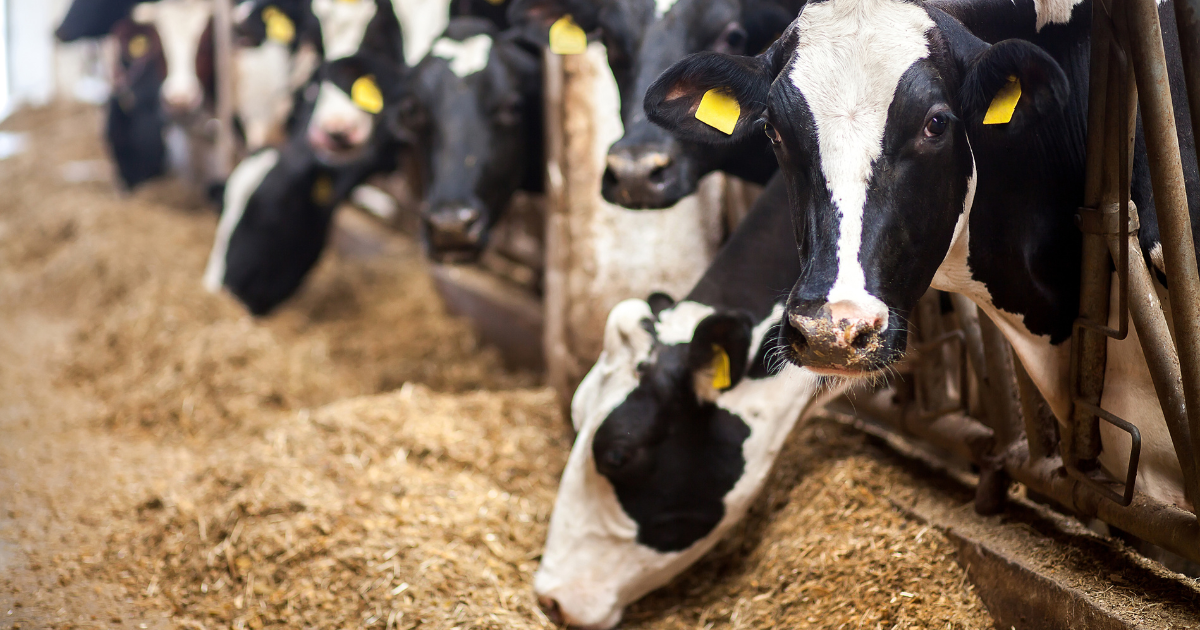
Improving grassland is vital to increase productivity
The National Farmers Union has warned of an imminent foodcrisis in the UK unless we focus on supporting farmers to be more sustainable and productive.
With grassland accounting for more than 60% of UK farmland, reseeding is extremely important to increase farm productivity. High quality reseeds can carry more stock, increase liveweight gain, regrow faster and use nitrogen more efficiently. Reseeds will also grow much earlier and later in the year, which will maximise the number of days grazing and reduce livestock feed costs.
The decision whether to reseed this spring should be based on the performance of the ley. Is the field low yield? Has stock been reluctant to graze? Has liveweight gain or milk yield been disappointing?
Was the field badly poached over the winter or was it badly affected by the 2022 drought? Has the field got a large proportion of weed grasses or is it badly infested with broadleaved weeds like docks?
The rule of thumb? If the percentage of perennial ryegrass falls below 50%, reseeding or overseeding is recommended. It’s not difficult to see how a newly sown sward with the latest NIAB rated varieties will outperform an old worn-out sward with poor grass species by over 100%.
Spring reseeding is popular on lower stocked farms, which can afford to have a block of ground closed for reseeding without suffering a grass deficit.
In the first year swards will produce more grass following spring reseeding than if they were not reseeded. But the real benefits come in year two and will last for a long time. If using clover in the mixture it’s important to sow earlier in the year as it takes up to 10 weeks for it to establish properly.
Heavier wet soils need to be reseeded earlier in the year. Increasing soil temperatures and hours of sunshine will improve grass and clover establishment.
Spring reseeds can be grazed several times over the summer allowing the swards to tiller and thicken, meaning the following spring the sward is up and running with a higher yield and quality than a reseed carried out in the autumn.

The benefits of a spring reseed with an MVF Premier Ley
- Introducing more productive grass species
- New improved varieties (NIAB listed)
- Increased grass palatability
- Increased protein content
- Reduced nitrogen requirement and increasing N fixing potential
- Chance to rectify soil compaction
- Uses more disease resistant varieties
- Ability to extend grass growing season
- Ability to lower feed costs on the farm
New mixtures for 2023
In recent years, the focus has been on regenerative farming and having more sustainable farming systems. Last year we introduced the very successful and popular GS4 mixtures which is awarded a £358/hectare a year payment, for a five year term, under the Government’s Countryside Stewardship scheme.
This year we have introduced two new mixes called New Sustainable Pasture and Multi Species Ley. The new Sustainable Pasture mix is ideal for those wanting to reduce fertiliser inputs. It’s made up from deep rooted grass species and a mixture of white and red clover. It’s designed to be persistent and cope with drought and waterlogging. Among its benefits is an excellent nutritional value with highly digestible fibre for animal performance. The higher root biomass also increases carbon sequestration in soils for improved soil and environmental health
The new Multi Species Ley contains a mixture of deep rooting grasses, legumes and herbs, designed to improve organic matter levels in the soil, which can increase carbon storage capacity and water and nutrient availability.
The addition of plantain and chicory in the mixture also improves drought resistance and lowers the use of animal wormers.










